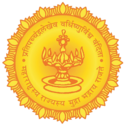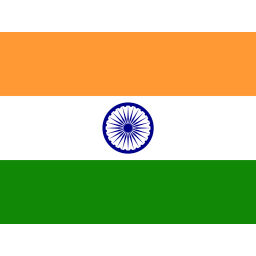Address at the Closing Ceremony of the 14th Mumbai International Film Festival (MIFF)
Address by Shri CH Vidyasagar Rao, Governor of Maharashtra at the Closing Ceremony of the 14th Mumbai International Film Festival (MIFF) for Documentary, Short & Animation Films organized by the Films Division, Ministry of Information & Broadcasting in collaboration with Government of Maharashtra at Ravindra Natya Mandir, Prabhadevi, Mumbai at 6.45 pm on Wednesday, 3 February 2016
Shri Vinod Tawde, Hon’ble Minister for Higher Education and Culture, Government of Maharashtra, Shri Ramesh Sippy, Guest of Honour, Shri Mukesh Sharma, Director, Films Division, Shri Jackie Shroff, Brand Ambassador of MIFF 2016, eminent filmmakers from across the world, directors, cinematographers, award winners, delegates, invitees, ladies and gentlemen,
Good evening and greetings to you.
I am pleased to associate myself with the closing ceremony of the 14th edition of the Mumbai International Film Festival for Documentary, Short and Animation films.
The last week must have offered you opportunities to watch short, animation and documentary films, to discuss films, to share your ideas and to study the impact of these films on the audience. I quite feel that it must have been an enriching experience for each one of you.
I congratulate each one of the award winning filmmakers, directors, producers, cinematographers, Animators, Sound Recordists and others who were honoured today. At the same time, I also congratulate all the nominees chosen this year. May I take this opportunity to congratulate the Jury members for their excellent work.
It is glad to see MIFF growing every year. The Festival has gained in stature and popularity, and I am confident that in the near future it will be reckoned among the top festivals such as Leipzig, Berlin, Oberhausen, Cracow and others.
Ladies and gentlemen,
MIFF was started in the year 1990. India took the path of globalization, liberalization and privatization in the year 1991. In a way, MIFF has grown with India. During the last 25 years, India has really come on the global stage. From being a developing country, we are on the verge of breaking into the league of developed nations. We are already reckoned among the top economies in the world.
The last 25 years also witnessed a revolution in the skies thanks to the arrival of satellite television. This was followed by the Internet and Mobile Revolution. Our engineering graduates hoisted the flag of India in the Silicon valley and in other places around the world giving us the recognition as an IT leader.
When I was young, I used to see documentaries only in theatres. It was the only medium for reaching out to the audiences. There was no choice. There were documentaries made by Films Division on foreign visits undertaken by Prime Minister Pt Jawaharlal Nehru, Indira Gandhi, by our Presidents or those on the visits of foreign dignitaries to India. These documentaries were shown before the start of commercial films or during the Intermission.
But thanks to the technological revolution, arrival of 3G and 4G mobile services and the social media revolution, documentaries and short films can now be seen anytime and from anywhere using the mobile phone. Technology has really empowered the common man.
India has emerged as the most youthful nation in the world. It is estimated that by 2020, the average age of an Indian will be 29 years, almost 8 years younger than the average age of a Chinese or an American. I do feel that this transformation of ‘India’ into ‘Young India’ must be reflected in the realm of film-making.
India today needs a young generation of film makers, – gifted with curiosity and ideas, and who are ready to take risks.
We do not want filmmakers only from metropolises; we want filmmakers coming from India’s hinterlands, from towns and villages and from hills and valleys and from various socio-economic stratas of society. Together they can bring out the real India, the beauty of India, the peculiarities of India and the everyday struggle for existence faced by the people. I am confident that the films made by these young people will reflect the dreams and aspirations of the people of India.
Exposing ourselves to different films made about various societies will help us understand the complexities, as well as simplicities of life in India and around the world. It will help broaden our imagination and understanding of issues beyond the existing boundaries.
The Hon’ble Minister for Education and Culture Shri Vinod Tawde is here. I would urge him to consider screening of short films, animation films and documentaries in schools and colleges in the State. Like the supplementary reading recommended to students in schools and colleges text books, there can be supplementary viewing of films from these categories by students. I am sure, exposure to good short films and documentaries will make the learning comprehensive as well as entertaining for students.
As Chancellor of Universities in Maharashtra, I also want to see the Films Division working closely with the media departments of Universities in the State. I dream of a day when universities will be sending their entries to MIFF.
Secondly, I do feel that Film Appreciation Courses should be provided in all Universities, and I would seek the cooperation of Films Division and the Film and Television Institute of India in this regard.
The Director of Films Division Shri Mukesh Sharma is also the Additional Director General of Mumbai Doordarshan. I would urge Door Darshan to keep a fixed time slot of, say, one hour, for screening the best of short films and documentaries from across the world.
Today, women are breaking the proverbial glass ceiling in all walks of life. I wish to see more women filmmakers creating short films and participating in this festival.
Finally, I wish to see MIFF becoming a festival which encourages experimentation and innovation in the art of film making. This festival carries the name Mumbai in its nomenclature. I will therefore call upon the MIFF authorities to make Mumbai-kars stakeholders in the Mumbai International Film Festival.
I conclude by congratulating and thanking the Films Division, the Indian Documentary Producers’ Association and others who helped make this festival happen. I convey my sincere appreciation to the Ministry of Information & Broadcasting for its support to the Festival.
I also congratulate the Government of Maharashtra and Minister Shri Vinod Tawde for the association of the Government of Maharashtra with the festival.
The participation of all the delegates is important to us and we want to see all of you here again with new films and new ideas in the next edition of the Festival.
Thank you for your attention.
Jai Hind ! Jai Maharashtra !!
***



